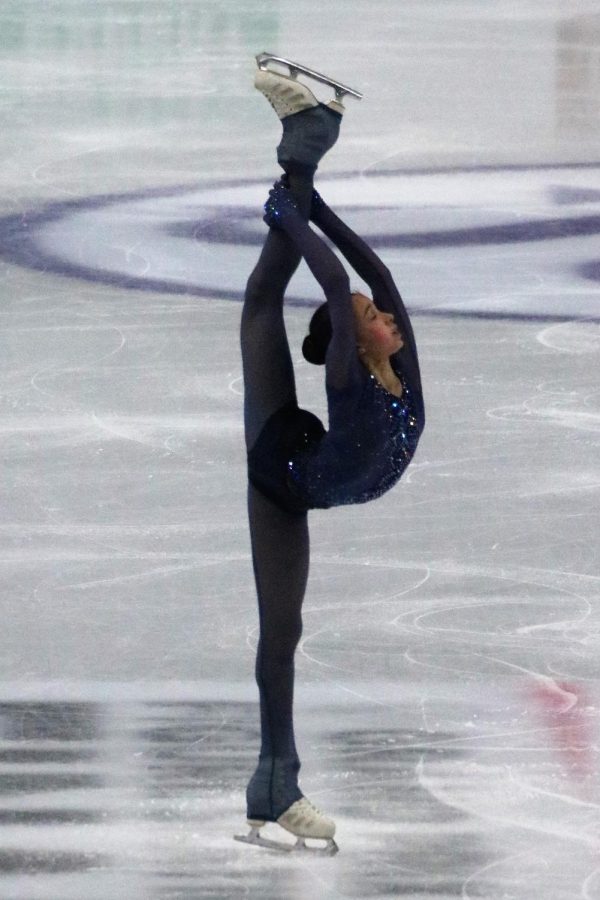Kamila Valieva: Olympian Drama
February 27, 2022
At only 15-years-old, Kamila Valieva is one of the youngest competitors at the 2022 Beijing Olympics. A Volga Tatar from Kazan, Russia, and representing the Russian Olympic Committee, she has won several high ranking medals since her international debut in late 2019. However, the rising star has been at the center of the latest Olympic controversy after testing positive for several banned substances in her system. In addition to her recent fourth place finish, the young Russian’s future in the Olympics and as a competing athlete have come into jeopardy.
Valieva’s troubles began in early February, after identification of trimetazidine was confirmed during a routine medical test all Olympic athletes are required to take. The drug, primarily used for treating chest pains known as angina pectoris, is one of many substances and medications banned by the World Anti-Doping Agency. Although the drug has legitimate medical purposes, it can also improve the efficiency of one’s blood flow and increase endurance, both of which could give an athlete an unfair advantage in a competition.
Following the test, several potential reasons arose as to why trimetazidine had been found in Valieva. One cause came from a member of the International Olympic Committee (IOC), who suggested that Valieva may have been contaminated due to being in close contact with her grandfather, who was taking the substance as medication. Another theory was suggested by Valieva’s mother, who claimed that her daughter had been taking the substance due to “heart variations.” Valieva herself even declared that she had been taking specific medications containing trimetazidine on a doping control form, creating further confusion and debate.
Despite openly admitting to using banned substances, Valieva was cleared by a panel of arbitrators to continue competing in the Olympic games due to the panel’s agreement that minor Olympic athletes were subject to different rules than adults. However, her permission to return to competition came with some conditions. A ceremony would not be held if Valieva placed within the top three of her competition, nor would one be held for the previous competitions that Valieva had already won. This resulted in all other competitors of the Olympic skating short program also being withheld earned medals, such as Nathan Chen and the rest of the skaters representing the US.
“We are devastated that they will leave Beijing without their medals in hand, but we appreciate the intention of the IOC to ensure the right medals are awarded to the right individuals,” stated the US Olympic and Paralympic Committee.
As for Valieva herself, she placed fourth in the finals of her event, a shocking event for both the young Russian and for her audience, who had high expectations for her to win the event. Valieva had several falls during her performance which cost her points, and she ended the event in tears of frustration. Equally upset with her performance was Valieva’s coach Eteri Tutberdize, who was seen berating her student and angrily questioning the mistakes she had made. Similarly, Valieva’s teammate Alexandria Trusova visually expressed her anger at the results of the competition, having also failed to win gold. The drama unfolding in the Russian skating team was observed by the world, and described as “chilling” by the president of the IOC, Thomas Bach.
As the curtains close on Valieva’s competition in Beijing, Coach Tutberdize will come under close investigation about her potential role in Valieva’s positive test for trimetazidine. In the end, Kamila Valieva and the decisions of those around her helped spur some of the most controversial Olympic drama of this year’s event, affecting both herself, her team, and fellow competitors alike.
Photo courtesy of COMMONS.WIKIMEDIA.ORG

